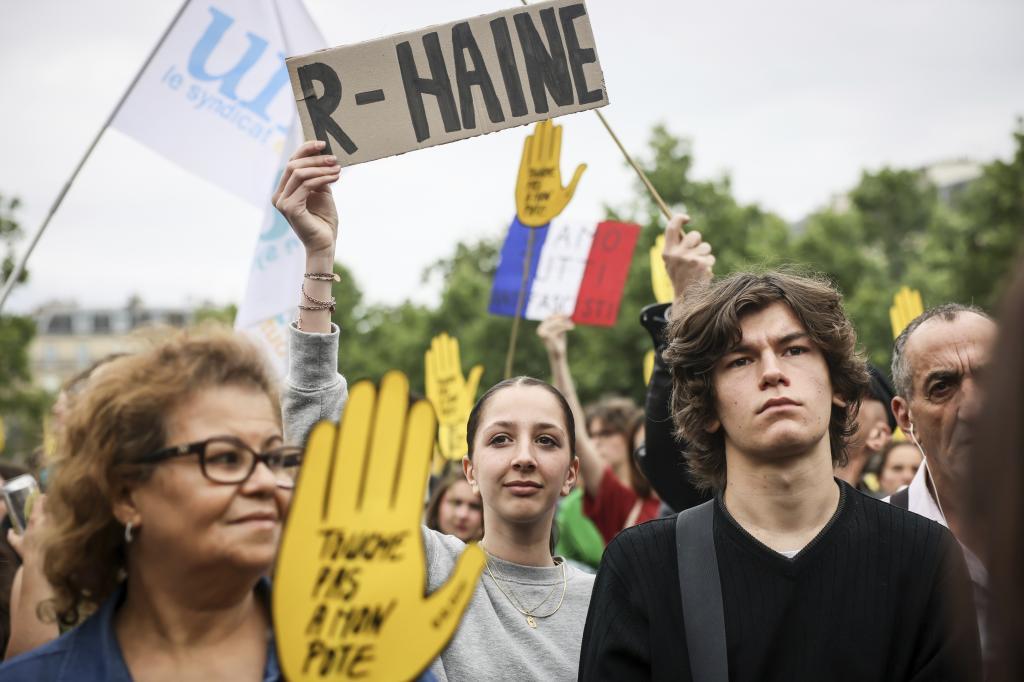"Bloquons tout!" ("Let's block everything!") is the slogan in the form of a hashtag spreading through French social media since mid-July, when Prime Minister François Bayrou announced cuts of 43.8 billion euros and the elimination of two public holidays, a decision contested simultaneously by the far left and far right and condemned by unions as a declaration of social war.
Following the path set in 2018 by the gilets jaunes (yellow vests), who turned the country upside down in protest against fuel price hikes and loss of purchasing power, a more or less diffuse group of activists is stirring up on social media the mobilization for September 10, calling for a general strike and a total shutdown of the country on the day already marked in red on the calendar.
"The start of the school year will be tense: people are desperate, and that is reflected in the various movements that are emerging," warned Jacline Moraud, godmother of the yellow vests movement. "'Let's block everything!' could bring together all that indignation that will inevitably end up in the streets. France is Macron's France. The feeling of abandonment persists, the challenge has only grown."
The yellow vests mobilized over three million French citizens in roadblocks and roundabouts, resulting in 6,400 arrests, over 2,000 injuries, and at least 500 cases of police abuse. Five years later, in 2023, a new revolution took to the streets of Paris and dozens of cities, this time in protest against pension reform and raising the retirement age from 62 to 64.
The sense of unease in French society has been increasing since then, exacerbated by the political instability resulting from the early elections in July 2024, which led to the rise of the far left and far right, and the loss of the center-right macronist coalition, which saw Michel Barnier fall in December and now threatens to bring down his successor, François Bayrou.
President Macron and Prime Minister Bayrou are now the least popular executive duo of the Fifth Republic, both below the 20% threshold of popular approval. Bayrou faced, in fact, in July, the eighth vote of no confidence in six months of his term, driven by the left-wing bloc and narrowly saved thanks to the abstention of Marine Le Pen's National Rally, which, however, has shown willingness to bring down the Government in the next attempt if it persists in its "attack against French workers and pensioners."
In his controversial announcement on July 15, under the banner that read "The moment of truth," Bayrou evoked the specter of Greece to justify the cuts in the fight against the public deficit, which soared to 5.8% of GDP in 2024 (in contrast to the European average of 3.2%). The freezing of social spending (the "blank year") and the elimination of two public holidays - Easter Monday and Victory Day - were his most unpopular announcements.
The final budget battle of 2026 will be fought in the National Assembly starting in September, although the real showdown is expected to take place on the streets, the true third power in France, capable of toppling governments and making presidents back down (as with the yellow vests).
The Ministry of the Interior has decided to take the country's paralysis threats seriously, "but without jumping to conclusions," as acknowledged by a senior police officer to Le Figaro. "There is a gap between support on social media and the concrete expression of outrage on the ground."
"Summer is not a conducive time for mobilization, and we have already seen several attempts to revive the yellow vests," warn the same sources. "The social drive to block everything could clip the wings of these supposed leaderless movements and clash with the anti-austerity mobilizations planned by the unions."
However, there is also fear of a possible convergence, especially after the petition launched on July 22 by eight unions on Change.org, denouncing "the new litany of brutal, unjust, and ineffective measures" contained in the 2026 budget, as well as "the sacrifices they entail for workers."
"What is on the agenda is mobilization," declared Sophie Binet, general secretary of the General Confederation of Labor (CGT). "The CGT will do everything possible to prevent social regressions from taking effect, and that includes mobilizations after the summer." "Our organization will call for mobilization and a general strike," anticipated Fréderic Souillot, general secretary of Workers' Force (FO), stating that the union's protest actions are planned from September 1 to November 30.
Everything points to a turbulent political and social rentrée, with what happens - or doesn't happen - on September 10 as the real litmus test of the supposed movement. Revolutionary posters announcing the general stoppage are already circulating from hand to hand, with the usual raised fists and calls to "stop the looting of the people."
Protest agitators aim to go beyond a general strike and turn that day into a total boycott, accompanied by withdrawing money from "banks complicit in speculation and social rupture policies", refusing to buy at large retailers, or occupying public buildings. However, others advocate for something like a day of self-confinement as a form of protest, "without work, without schools, without travel, silently making the power of resistance heard."
François Ruffin, a documentary filmmaker and commentator close to Jean-Luc Mélenchon and La France Insoumise, predicts that what may happen in September will be "a popular censorship before parliamentary censorship", which could end with the fall of Bayrou's Government and possibly, ultimately, with the calling of new early elections.
In statements to Radio France, social conflict specialist historian Stéphane Sirot drew a parallel between what is brewing and the yellow vests: "We are facing forms of mobilization that seek to build from digital technology and bring together very diverse people from all points, from political ideology to methods of action, united this time by opposition to a budget perceived as unfair and unequal."
